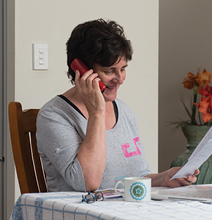On Thursday 24 January 2019 the European Commission and MEP David Casa announced that a provisional agreement had been reached in the negotiations around the work-life balance directive. This agreement, if approved by the Council of the European Union and the European Parliament, will introduce upgraded rules for the reconciliation of work and private life of employed parents and carers. This has been made possible through intense lobbying from civil society organisations and trade unions.
‘This agreement is very good news for many older people, most of them women, who have to both care for a family member in need for assistance and continue working. Even though we did not achieve the standards proposed initially by the Commission, the agreement is a strong signal to millions of overburdened carers. It will also contribute to reduce inequalities between women and men in the labour market’, said Anne-Sophie Parent, AGE Secretary-General.
Recognition of carers and improved rules for parents
The agreement reached between the Romanian presidency, the European Parliament’s rapporteurs and the European Commission will, for the first time, recognise informal carers and give them a right to take five days of carers’ leave per year. Although modest, this means that member states will have to recognise carers in their employment laws throughout the EU.
Also, the agreement means the introduction of a right to paternity leave, paid at sick-pay level, and modification to parental leave, allowing for 2 months of ‘adequately paid’ parental leave for both parents, which they cannot transfer to the other parent. Two further months per parent can continue to be transferred from one parent to another. Finally, the agreement will introduce a right to request flexible work arrangements for workers who have family responsibilities.
The initial Commission’s proposal went further than this, introducing also minimum levels of remuneration for carers’ leave and making the whole four-months period of parental leave non-transferrable and remunerated. While the Parliament had demanded higher remuneration standards, EU member states were not able to agree on such rules.
Further efforts needed on national levels
If this agreement is approved by both the Parliament and the Council, member states will have to transpose the directive into their national law. A lot of scope is left to member states to set their own standards:
- All periods and payment levels indicated are only minimum standards, member states can set higher ones.
- Member states have to determine a level of payment for parental leave
- Member states have to define the conditions for carers’ leave: it can be taken for ‘serious medical reasons’, which can be interpreted in different manners, and can chose to allocate leave on a case-by-case basis or introduce additional conditions to exercise this right.
AGE will do its utmost to raise awareness of the directive and encourage member states’ to set high standards especially in the area of carers’ leave.
To complement the directive, the European Commission has also released a communication on non-legislative measures – funding of care services and recommendations through the European Semester – to improve work-life balance of parents and carers. The European Parliament has recently called to invest further into quality care services to reach gender equality.
Background
The Commission proposed a directive to improve work-life balance in April 2017 as a first initiative linked to the European Pillar of Social Rights. Its aim is to allow parents and carers to stay in the labour market by distributing more equally care work between women and men. Currently, women are paid 16% less than men for the same work, and the gender pension gap is standing at 37%. Due to cuts in the social care systems, many families are struggling to find quality care arrangements for their older family members in need for care and assistance. This void is often filled by informal carers, many of which are older women of working age who reduce their working hours accordingly (read more this article). AGE has been asking for a directive on carers’ leave for years and was part of an intense campaign together with other civil-society organisations to reach an agreement on this directive.
More information:
- European Commission: Work-Life Balance: Commission welcomes the provisional agreement reached today
- COFACE-Families Europe: Provisional agreement reached by EU co-legislators on work-life balance measures
- Council of the European Union: Better work-life balance for EU citizens: Presidency reaches provisional agreement with the European Parliament
- AGE: The Right to Carers’ Leave, a Necessity in Today’s Context of Demographic change
- AGE Position Paper on carers’ leave and work-life balance directive
- AGE factsheet on EU legislation proposal on care leaves






